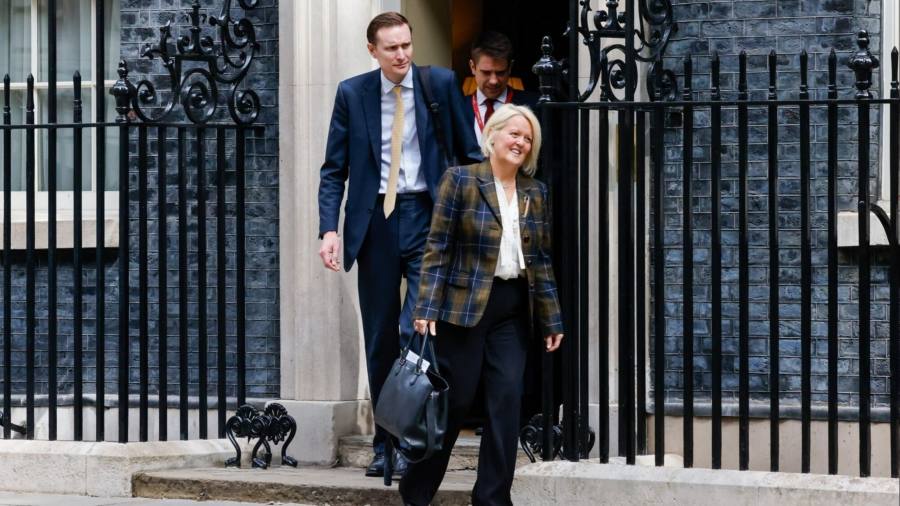Receive free Mortgages updates
We’ll send you a myFT Daily Digest email rounding up the latest Mortgages news every morning.
UK banks will introduce a minimum 12-month period before repossessing homes of borrowers who cannot keep up with mortgage payments, chancellor Jeremy Hunt announced on Friday.
Repossessions are still at a relatively low historic level, but many experts are worried about the consequences of the recent rise in borrowing costs.
“The last thing that they want to do is repossess a home, but in that extreme situation they have agreed there will be a minimum 12-month period before there’s a repossession without consent,” Hunt said after meeting bank executives in Downing Street.
The policy goes further than Labour’s call this week for a six-month wait before repossession could occur. Under the government’s existing “pre-action protocol” banks should not repossess a property unless “all other reasonable attempts” to resolve the situation have failed.
The chancellor said he had also agreed with lenders that customers could discuss options for adjusting their mortgage without affecting their credit score, in line with existing guidance from the Financial Conduct Authority, the UK watchdog.
Hunt said lenders also agreed that if borrowers changed their mortgage to an interest-only contract, or extend the term of the deal, they could return to their original mortgage deal within six months without affecting their credit score.
“That I think is going to give people a lot of comfort and stop people worrying about having conversations with their banks when they are worried about their financial situation,” he said.
One lender said the commitment by the banks to delay repossessions was similar to the assistance temporarily introduced by banks for struggling homeowners during the Covid-19 pandemic.
Many banks already offer struggling customers options, including temporarily switching to an interest-only mortgage deal, but Friday’s commitment by lenders standardises it across the industry.
Other measures, such as customers talking to their banks without it affecting their credit score, are already available but will be better publicised, one lender said.
Attendees at the meeting included Nikhil Rathi, head of the Financial Conduct Authority, as well as chief executives Charlie Nunn of Lloyds, Debbie Crosbie of Nationwide, Alison Rose of NatWest, David Duffy of Virgin Money and Mike Regnier of Santander UK.
Rathi said: “We’ll move quickly to make any changes needed to support today’s commitments.”
The Bank of England’s Monetary Policy Committee voted on Thursday to increase rates by 0.5 points to 5 per cent — the highest level for 15 years — with expectations that the figure could rise to 6 per cent by the end of 2023.
Many borrowers coming off variable mortgage rates or having to replace their fixed-rate mortgages are being offered two-year fixed deals over 6 per cent, resulting in big jumps in their monthly repayments.
The chancellor has ruled out a return of the mortgage interest relief scheme known as MIRAS. He has also rejected the idea of giving fiscal support to households, arguing the government’s priority is to “strangle” inflation.
The Liberal Democrats have called for a new multibillion-pound support scheme for vulnerable householders. But instead, the chancellor has encouraged lenders to show forbearance to struggling customers.
Under a December 2022 agreement between banks, regulators and the Treasury, lenders are required to offer tailored support to those unable to keep up their mortgage payments.
Additional reporting by Siddharth Venkataramakrishnan
Read the full article here




